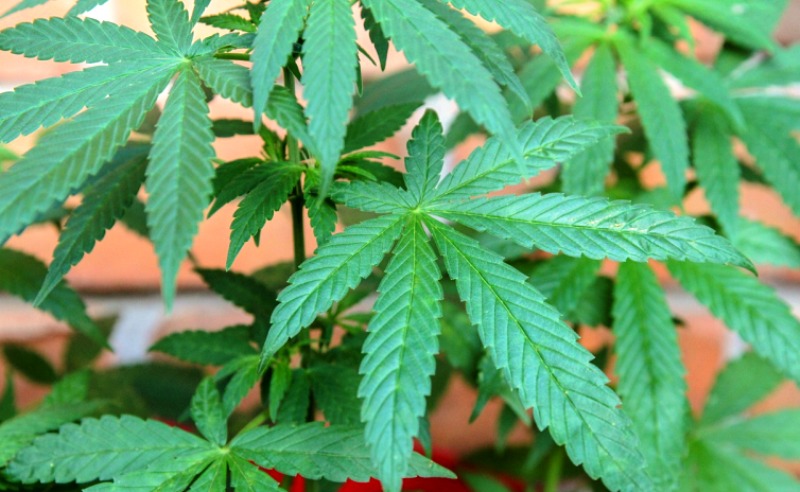CBD is considered to be beneficial owing to its interactions with the ECS and the activation of specific enzymes and receptors.
Women all around the world have been searching for a more natural way to manage the symptoms of menopause for quite some time. CBD may be one such possibility, owing to its impact on the endocannabinoid system, among other things (ECS). Prior to delving into the link between the ECS and menopause, it’s important to understand the underlying reasons for the condition.
Menopause is something to be understood
Menopause is characterised by a decrease in the levels of oestrogen and progesterone in a woman’s body. As a result, menstrual cycles will be discontinued, and spontaneous conception will no longer be a possibility. However, don’t be concerned; this is a normal part of the ageing process and something that every woman goes through. It is difficult to deal with the symptoms of menopause since, while it is a natural process, it does not make them any less uncomfortable to deal with. Hot flashes, nocturnal sweats, difficulty sleeping, depressed mood, and pain during sex might be experienced by some women for up to fourteen years after menopause.
Conventional therapies for the symptoms of menopause include hormone replacement therapy (HRT), counselling, and dietary and exercise regimen modifications, among other things. The issue is that, because the symptoms might last for years, medications such as HRT can have a negative impact on the body and produce a variety of adverse effects.
Menopause symptoms are a part of everyday life
Menopause typically affects women between the ages of 45 and 55, although it can occur earlier or later than this timeframe. As previously said, menopause is caused by a shift in the amounts of hormones in the body. In women starting in their mid-thirties, their oestrogen levels begin to decrease, signalling the beginning of perimenopause. Several of the symptoms linked with menopause are caused by a gradual decrease in oestrogen levels over time. Symptoms can persist following menopause and into the postmenopausal era, but they are usually less severe than they were during the perimenopause phase.
Even by just describing the symptoms of menopause, it is clear that the condition has a significant negative influence on a woman’s quality of life. Many of us are irritable or depressed after a single night of poor sleep; however, imagine the same problems lasting for years on end. In addition, painful sex puts a burden on any relationship since it causes hot flashes to occur at inconvenient times, making it difficult to concentrate. While women have traditionally just had to grin and bear the symptoms of menopause, a current scientific study suggests that CBD may be a natural option for making symptoms easier to deal with.
CBD’s impact on the endocannabinoid system may be critical in the treatment of epilepsy
CBD is thought to be helpful due to the interactions it has with the ECS and the activation of certain enzymes and receptors that it has been shown to activate. It does not directly address menopause, but it has been shown to have an impact on a number of menopausal symptoms.
The highly prevalent “hot flashes” that women experience during menopause are caused by the body’s inability to control its internal temperature properly. A number of previous research have shown that the endocannabinoid anandamide (AEA) may have a role in our capacity to control our body’s internal temperature. Unfortunately, an enzyme known as FAAH rapidly degrades AEA in the body, rendering it ineffective. CBD, on the other hand, has been demonstrated to inhibit the synthesis of FAAH, allowing for increased signalling of anandamide.
An additional symptom of menopause is bone density loss, which if left untreated can progress to osteoporosis in later years. An article on ScienceDirect described a connection between CB receptors and TRPV1 channels for the first time this year. In their study, they discovered that individuals with osteoporosis had higher TRPV1 channel expression, which resulted in a “massive overexpression of CB2 receptors.” Their findings not only verified the importance of the endocannabinoid system in the development of osteoporosis but also indicate the possibility of using CBD as a therapy.
According to supporting research, CBD “is believed to be the most effective in influencing TRPV1 and TRPM8 channels.” It is likely that by utilising CBD to regulate TRPV channels, the overexpression of TRPV channels observed in osteoporosis patients might be decreased, and that novel treatments could be developed as a result.”
CBD and menopause: What the Future Holds
When one considers the findings of the research described above, as well as CBD’s alleged anxiolytic properties, it becomes clear why the chemical is being investigated as a therapeutic therapy for the symptoms of menopause. Because of its interaction with the ECS, CBD may be able to provide a variety of benefits to the body while causing just a fraction of the negative effects associated with hormone replacement therapy. Given that menopause is a normal component of the ageing process, it seems reasonable that future therapies would seek natural remedies for the condition.





























